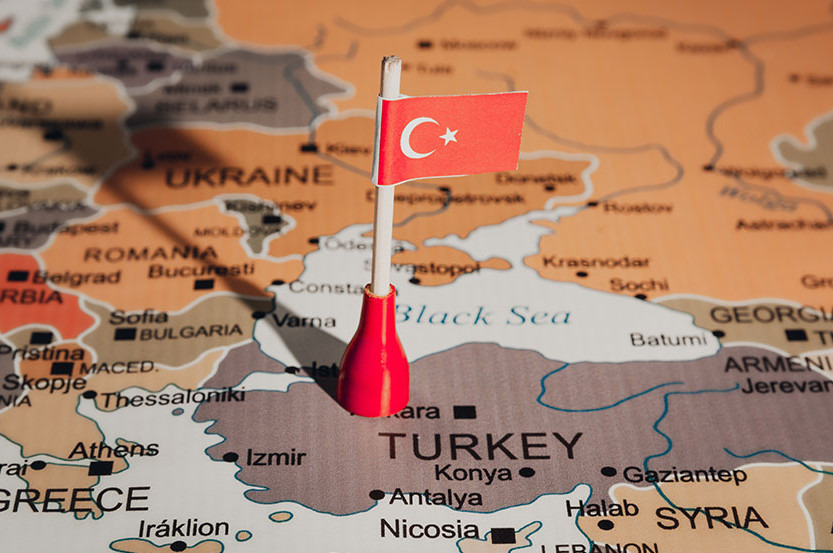Istanbul’s booming real estate market attracts thousands of foreign investors annually, drawing billions in foreign capital to Turkey’s economic powerhouse. However, navigating the legal landscape of purchasing property requires understanding specific restrictions that govern foreign ownership. While the Turkish property market has opened significantly to international buyers since 2012, several significant limitations and requirements remain in place.
Foreign nationals can legally purchase land in Istanbul, but success depends on understanding nationality-based restrictions, geographic limitations, documentation requirements, and investment thresholds. This comprehensive guide examines every aspect of legal restrictions for foreigners buying land in Istanbul, providing the essential knowledge needed to navigate Turkey’s property acquisition process successfully.
Overview of Foreign Land Ownership Laws in Turkey

The legal framework governing foreign property ownership in Turkey underwent significant liberalization with amendments to Land Registry Law No. 2644 in 2012. This legislation opened the Turkish real estate market to most foreign nationals, creating opportunities for international investment while maintaining specific safeguards for national security and economic stability.
Foreign buyers enjoy nearly identical property ownership rights as Turkish citizens, with the ability to purchase residential properties, commercial properties, and undeveloped land throughout most of Turkey. The law enables foreign nationals to hold full title deeds, transfer ownership, and even qualify for Turkish citizenship through property investment.
However, these rights come with carefully structured limitations designed to prevent excessive foreign concentration in sensitive areas. The Turkish government maintains oversight through the land registry system, requiring all foreign property purchases to undergo verification processes that confirm compliance with nationality, geographic, and size restrictions.
The current legal framework reflects Turkey’s strategy to attract foreign investment while preserving national interests. Unlike many countries that severely restrict foreign land ownership, Turkey’s approach strikes a balance between openness and regulation, making it one of the more accessible European markets for international property buyers.
Nationality-Based Restrictions and Prohibited Countries
Turkish law specifically prohibits citizens of certain countries from purchasing property, based on reciprocity principles and national security considerations. Citizens of Syria, Armenia, North Korea, Nigeria, and Cuba are currently prohibited from acquiring property in Turkey under existing regulations.
Additionally, Iraqi, Iranian, and Palestinian citizens face special requirements, needing explicit permission from the Turkish Interior Ministry before completing any property purchase. This approval process typically requires submitting additional documentation and can extend transaction timelines by several weeks.
The reciprocity principle plays a crucial role in determining eligibility. Countries that restrict or prohibit Turkish citizens from buying property may face similar limitations for their nationals seeking to purchase real estate in Turkey. This policy ensures balanced international property investment relationships.
For restricted nationalities requiring special permits, the application process involves submitting detailed background information, financial documentation, and intended use statements to Turkish authorities. Processing times range from two to eight weeks, depending on the complexity of the review and current diplomatic relations.
Foreign nationals from eligible countries should verify their status through the local land registry office before initiating any property search. Recent political developments can occasionally affect nationality restrictions, making current verification essential for successful transactions.
Geographic and Zonal Restrictions in Istanbul
Istanbul’s strategic importance creates specific geographic limitations on where foreign nationals can purchase land. Military zones and areas deemed critical for national security remain completely off-limits to foreign ownership, regardless of nationality or investment amount.
Military installations, government facilities, and strategic infrastructure create buffer zones where foreign property acquisition is prohibited. In Istanbul, this affects portions of districts like Çatalca and Silivri, where military presence creates substantially restricted areas.
Border security zones, while less relevant in central Istanbul, still impact some outlying areas within 20 kilometers of international borders or coastlines. The Bosphorus Strait and certain coastal areas maintain special status requiring additional clearances for foreign buyers.
The military clearance certificate process represents a mandatory step for all foreign land purchases. This verification, taking between 5 and 20 days, confirms that the proposed properties fall outside restricted zones. The Turkish bank account requirement facilitates this process, as financial institutions often coordinate with land registry directorates to streamline clearance procedures.
Airport proximity restrictions affect areas around Istanbul Airport and Sabiha Gökçen Airport, creating additional zones where foreign ownership faces limitations. These restrictions reflect security concerns about foreign nationals owning property near critical transportation infrastructure.
Foreign property buyers should always request military clearance verification before finalizing any purchase agreement. Properties that appear available through real estate agents may still fall within restricted zones, making official verification through the local land registry office essential for avoiding legal complications.
Land Size and Ownership Limitations
Turkish law imposes a maximum limit of 30 hectares of total land ownership per foreign individual across all of Turkey. This substantial threshold means most residential and commercial property purchases in Istanbul fall well below legal limits, but larger development projects require careful planning.
The 10% district limitation represents another crucial restriction: foreign nationals collectively cannot own more than 10% of any district’s total land area unless approved by Presidential decree. This rule requires verification of existing foreign ownership percentages before completing transactions.
Istanbul’s 39 districts vary dramatically in size, affecting how the 10% rule applies to potential purchases. Understanding these variations helps foreign investors identify areas with greater availability for international buyers.
Calculating Ownership Percentages in Istanbul Districts
District size variations create different opportunities for foreign buyers across Istanbul. Beylikdüzü, covering 37.7 square kilometers, offers more potential for foreign investment than compact districts like Şişli, which spans only 3.8 square kilometerDISTRICT TOTAL
| District | Total Area (km²) | 10% Foreign Limit (km²) | Current Foreign Ownership Status |
|---|---|---|---|
| Beylikdüzü | 37.7 | 3.77 | Low concentration |
| Kadıköy | 25.0 | 2.50 | Moderate concentration |
| Şişli | 3.8 | 0.38 | High concentration |
| Büyükçekmece | 39.5 | 3.95 | Low concentration |
The land registry office maintains current records of foreign ownership percentages, updating these figures as transactions complete. Foreign buyers should request verification of available capacity in their target districts before committing to specific properties.
Smaller districts in central Istanbul approach the 10% threshold more quickly, particularly in areas popular with foreign investors. This creates premium pricing in districts with limited foreign ownership capacity remaining.
For luxury properties and larger land acquisitions, buyers should consider districts with lower current foreign ownership concentrations. Areas like Büyükçekmece and Çatalca offer more flexibility for substantial investments while remaining within legal limitations.
Legal Documentation Requirements
Foreign land purchase in turkey requires extensive documentation, beginning with obtaining a Turkish Tax Number (Vergi Numarası) and Foreigner Identification Number (YKN). These identification requirements must be completed before initiating any property transactions.
Essential documents include apostilled and translated versions of passports, birth certificates, and marriage certificates where applicable. All translations must be completed by certified Turkish translators and notarized according to turkish law requirements.
Financial documentation proves crucial for large transactions, particularly those approaching investment thresholds for residence permits or turkish citizenship. Bank statements, proof of funds, and currency conversion records through turkish banks demonstrate legitimate funding sources.
The turkish bank account requirement facilitates both documentation and transaction processes. Foreign buyers must establish banking relationships in Turkey to handle property purchases, annual property taxes, and ongoing expenses like earthquake insurance premiums.
Property-specific documentation includes comprehensive title deed searches, debt verification, and lien clearances. The land registry law requires thorough due diligence to ensure properties carry clear titles without outstanding obligations that could affect foreign buyers.
Professional legal assistance becomes essential given the complexity of documentation requirements. Turkish Bar Association-registered real estate lawyers typically charge between $1,000 and $3,000 for comprehensive transaction support, including document preparation and regulatory compliance.
Mandatory Legal Processes and Clearances
Property valuation represents a mandatory requirement, with licensed Turkish appraisers conducting assessments within 3 to 5 days of purchase agreements. These valuations ensure compliance with minimum investment thresholds and provide official records for tax purposes.
Military clearance verification confirms that properties fall outside restricted zones, protecting foreign buyers from inadvertent violations that could result in property forfeiture. This process integrates with the broader property buying process through land registry coordination.
Comprehensive due diligence through the land registry office reveals any outstanding debts, liens, or legal encumbrances affecting properties. This verification prevents foreign buyers from inheriting previous owners’ obligations or legal complications.
Earthquake insurance (DASK) represents a mandatory requirement for all property transactions in Turkey. This coverage must be secured before title deed transfer, reflecting Turkey’s seismic activity and building safety requirements.
The legal process typically requires 2 to 4 weeks for completion, assuming all documentation is properly prepared and no complications arise. Foreign investors should plan transaction timelines accordingly, particularly when coordinating with residence permit or citizenship applications.
Working with reputable real estate agents familiar with foreign buyer requirements streamlines these processes significantly. Experienced agents coordinate between buyers, lawyers, land registry offices, and financial institutions to ensure smooth transaction completion.
Investment Thresholds and Citizenship Implications
The $400,000 minimum investment threshold for turkish citizenship eligibility represents a significant consideration for foreign land purchases. This investment must be maintained for three years without sale or transfer, creating long-term commitment requirements.
Residence permit applications require a $200,000 minimum property investment, offering a lower threshold for foreign nationals seeking Turkish residency. Both programs count land purchases toward investment minimums, provided properties meet valuation requirements.
The 3-year holding requirement for citizenship-qualifying properties creates specific legal obligations. Foreign investors cannot sell, transfer, or significantly modify these properties during the holding period without jeopardizing citizenship applications.
Built properties often provide more straightforward paths to meeting investment thresholds compared to undeveloped land. Residential properties and commercial properties typically appraise at market values that clearly satisfy minimum requirements.
Rental income potential enhances the attractiveness of investment-threshold properties, though rental income tax obligations apply to foreign property owners. Understanding these tax implications helps investors plan comprehensive financial strategies.
Property management services become valuable for foreign investors maintaining properties for citizenship or residency purposes. Professional management ensures compliance with maintenance requirements and maximizes rental income during holding periods.
Corporate vs. Individual Land Ownership

Foreign companies registered in Turkey can purchase land with fewer restrictions than individual buyers, offering advantages for larger acquisitions. Corporate ownership structures provide flexibility for business-related property investments and development projects.
Company registration requirements include establishing legitimate business purposes that align with property acquisition goals. Turkish authorities scrutinize corporate property purchases to ensure compliance with sectoral regulations and business licensing requirements.
Corporate structures offer particular advantages for commercial properties and development projects. Foreign companies can acquire larger land areas and navigate regulatory requirements more efficiently than individual buyers.
Additional compliance requirements for company-owned properties include corporate tax obligations, business licensing maintenance, and sector-specific reporting. These requirements create ongoing administrative responsibilities but offer operational advantages.
The capital markets board oversees certain types of corporate property investments, particularly those involving large-scale development or foreign capital flows. Understanding these regulatory frameworks helps foreign companies structure compliant investment strategies.
Legal fees for corporate property acquisitions typically exceed individual purchase costs due to increased complexity and compliance requirements. However, the operational advantages often justify additional expenses for substantial investments.
Common Legal Pitfalls and How to Avoid Them
Purchasing properties in restricted zones without proper verification represents the most serious risk for foreign buyers. Penalties include property forfeiture and legal complications that can extend for years.
Inadequate due diligence on property legal status creates ongoing problems, particularly when properties carry undisclosed debts or liens. Comprehensive title deed searches and legal verification prevent these costly mistakes.
Failing to obtain required clearances before title deed transfer can invalidate transactions or create lengthy delays. Following proper legal processes ensures smooth property transfers and clear ownership rights.
Working with unqualified legal representation increases risks significantly. Turkish Bar Association registration ensures lawyers meet professional standards and maintain current knowledge of property law changes.
Currency fluctuations can affect investment threshold calculations, particularly for properties purchased near minimum citizenship or residency requirements. Planning for exchange rate variations protects against threshold shortfalls.
Underestimating annual property tax obligations and ongoing expenses creates financial pressures for foreign property owners. Comprehensive financial planning includes all ownership costs, not just purchase prices.
Current Market Impact of Legal Restrictions
Legal restrictions influence property availability and pricing across Istanbul’s districts, with areas approaching foreign ownership limits commanding premium prices. Understanding these market dynamics helps foreign buyers identify optimal investment opportunities.
Foreign investment reached $8.5 billion in Turkish real estate during 2023, with Istanbul capturing the largest share. This substantial foreign capital flow demonstrates continued international confidence despite regulatory restrictions.
Recent policy changes, including investment threshold adjustments and documentation requirements, affect market accessibility for different buyer segments. Staying current with regulatory developments ensures compliance with evolving requirements.
Compared to other major Turkish cities like Antalya and Ankara, Istanbul maintains stricter oversight and more complex restriction patterns. However, the city’s economic significance and growth potential continue attracting substantial foreign investment.
The turkish real estate sector adapts continuously to balance foreign investment attraction with domestic market protection. Recent trends suggest continued openness to international buyers within carefully managed frameworks.
Property prices in unrestricted areas reflect both market demand and legal accessibility, creating pricing premiums in districts with high foreign buyer activity. Understanding these patterns helps investors optimize their property search strategies.
Property valuation trends show consistent appreciation in areas popular with foreign buyers, though legal restrictions create supply constraints that influence long-term value trajectories.
Legal restrictions for foreigners buying land in istanbul create a complex but navigable framework for international property investment. While nationality restrictions, geographic limitations, and documentation requirements demand careful attention, the turkish property market remains accessible to qualified foreign buyers.
Success in Istanbul’s real estate market requires thorough understanding of legal requirements, professional guidance from qualified attorneys, and careful planning around investment thresholds and documentation processes. The substantial foreign investment flows demonstrate that these restrictions, while comprehensive, do not prevent successful international property acquisition.
Foreign nationals considering property purchases in Istanbul should seek legal advice from Turkish Bar Association-registered attorneys specializing in real estate law. This professional guidance ensures compliance with all legal restrictions while maximizing investment opportunities in one of Europe’s most dynamic real estate markets
Read Also:
Apartments vs Land: Which Investment Offers Greater Long-Term Value?



